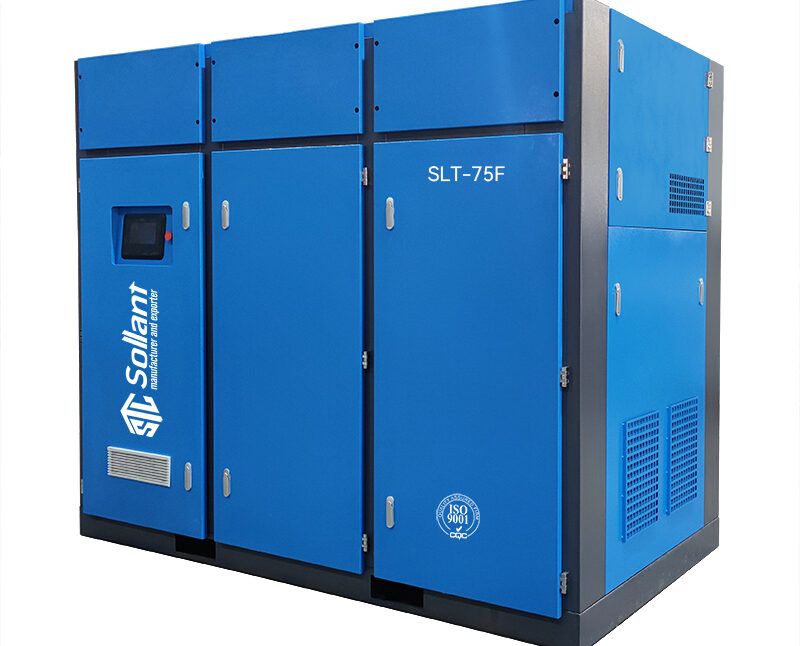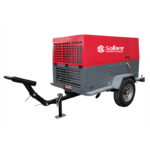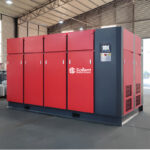High head resistance will cause the air compressor starting current to be too large, that is, the compressor will be overloaded, causing the air compressor to trip. Generally, excessive head resistance is caused by three reasons.
- Reasons for excessive machine head resistance
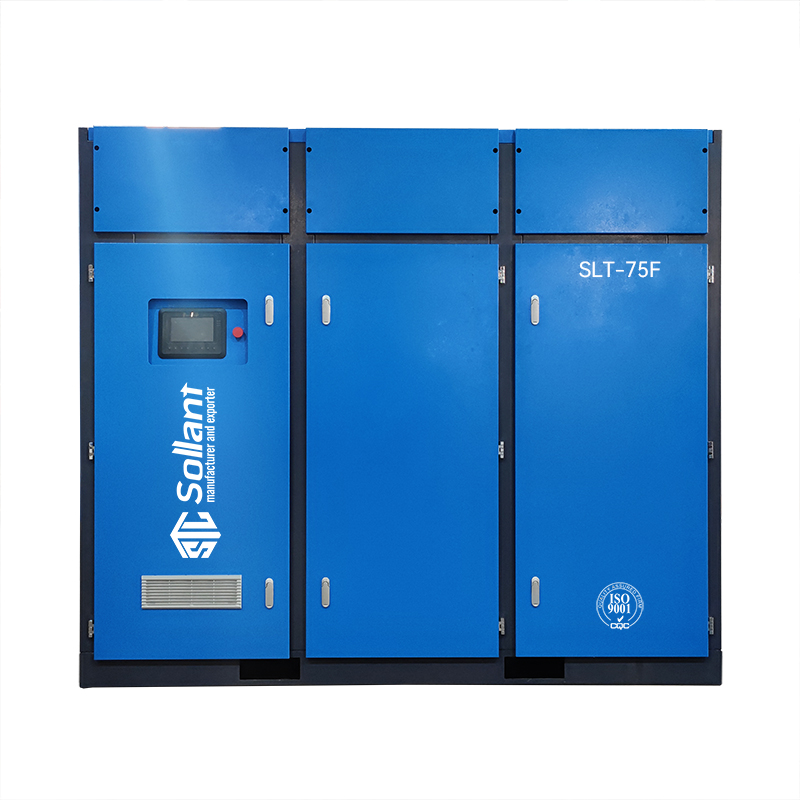
(1) Lubricating oil has high viscosity. The temperature in the south changes greatly with the seasons. The ambient temperature in summer can be as high as about 40°C, and the lowest temperature in winter is as low as below zero. According to the general characteristic that the viscosity of lubricating oil is inversely proportional to temperature, the viscosity of lubricating oil in winter will be significantly higher than in summer. Especially after shutdown in winter, due to the presence of moisture in the lubricating oil environment of the equipment, the temperature is too low, causing water to freeze and blocking the circulation of the oil circuit. Therefore, when the air compressor is first started in winter, it is particularly emphasized that it cannot be started directly, but needs to be jogged several times to drive the viscous lubricating oil to complete the circulation process as soon as possible.
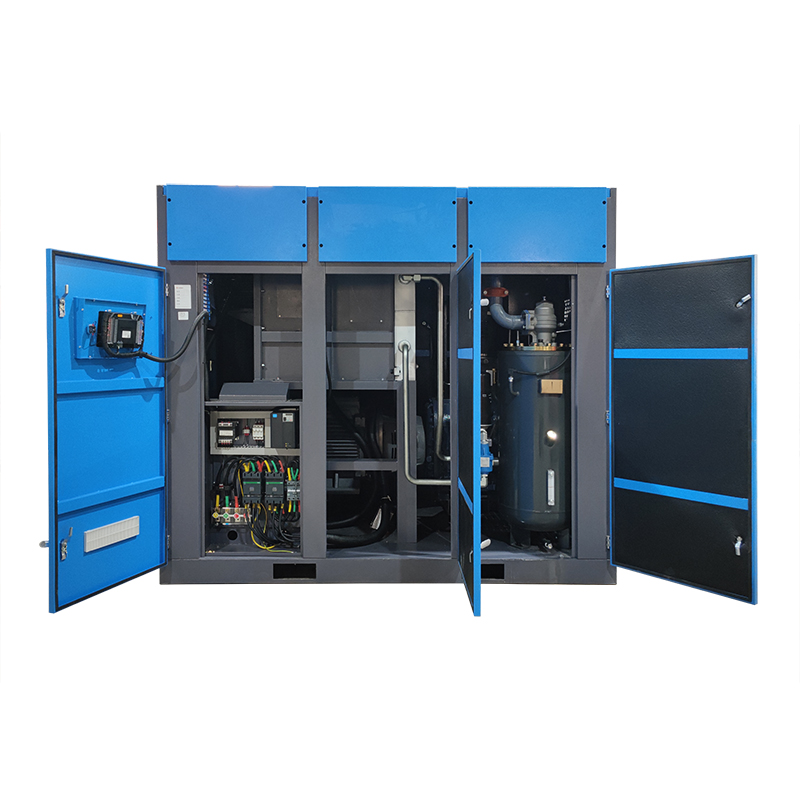
(2) For single-screw compressors, the screw and star wheel in the machine head are coked. The power of a single-screw compressor is mainly accomplished through the meshing of the screw and the star wheel. The size of the gap between the screw and the star wheel determines the power efficiency of the compressor. If the gap is too large, part of the gas will leak from the gap, and the compressor efficiency will be low; if the gap is too small, the resistance between the star wheel and the screw will be large, the load will be large, and the energy consumption of the motor will be large. Coking in the machine head can reduce the gap between the star wheel and the screw, increase the frictional resistance in meshing, and increase the current of the compressor.
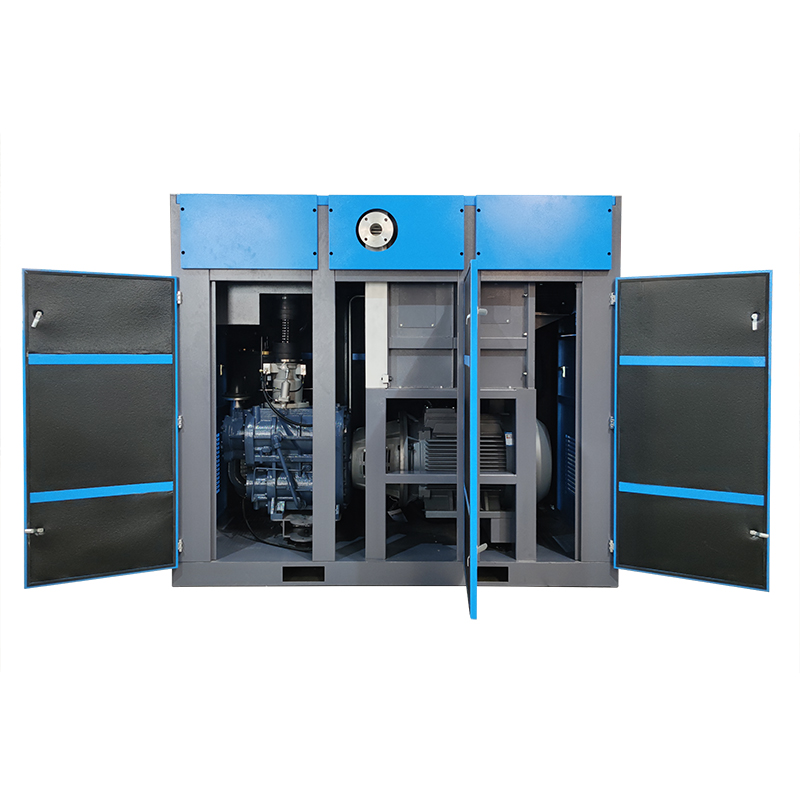
(3) The amount of lubricating oil in the machine head is too much. The oil cut-off valve at the outlet of the machine head failed. After the compressor stopped, the oil cut-off valve was not closed in time, and a large amount of lubricating oil was pressed into the machine head, resulting in a large starting resistance during the starting process. The increase in current caused the overload protection to trip. .
- Treatment method
(1) Manual turning is the most basic method to detect the connection and free rotation of the compressor power components, transmission components and linkage components. By manually cranking the compressor before starting, check whether the machine head and motor can rotate freely, and determine whether the resistance to rotation has increased based on past cranking experience.
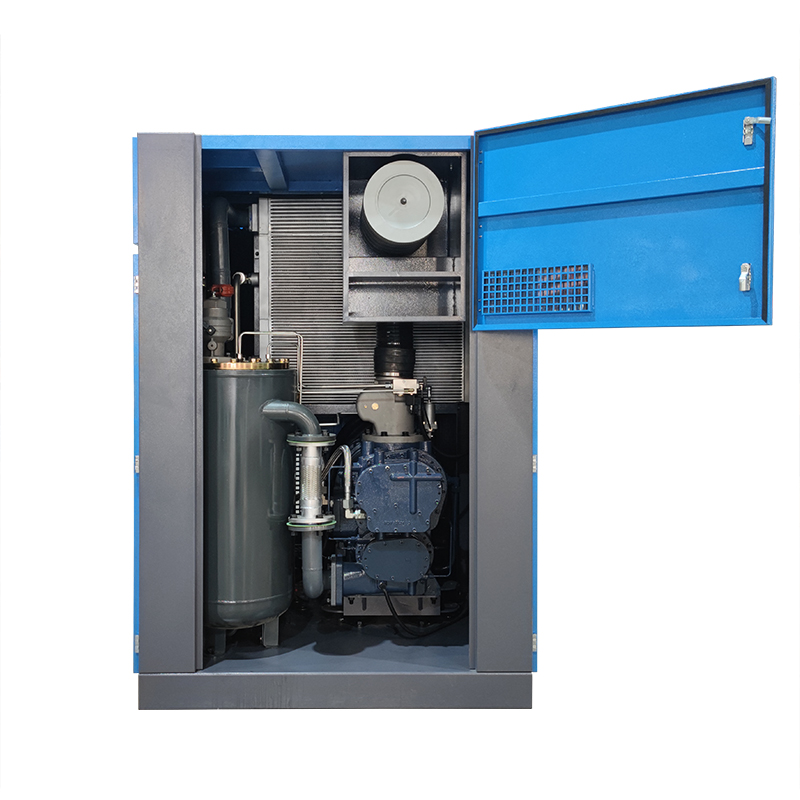
(2) Oil coking in the machine head is a phenomenon that often occurs in screw compressors when the oil quality is poor or the temperature is high. Due to coking in the machine head, the gap between the screws or between the screw and the star wheel becomes smaller, and the gap between the screws and the star wheel becomes smaller. During the process, the frictional resistance increases, the load of the unit increases, and the current increases. In severe cases, the screw and star wheel are bonded together by oil coke, and the unit cannot rotate freely.
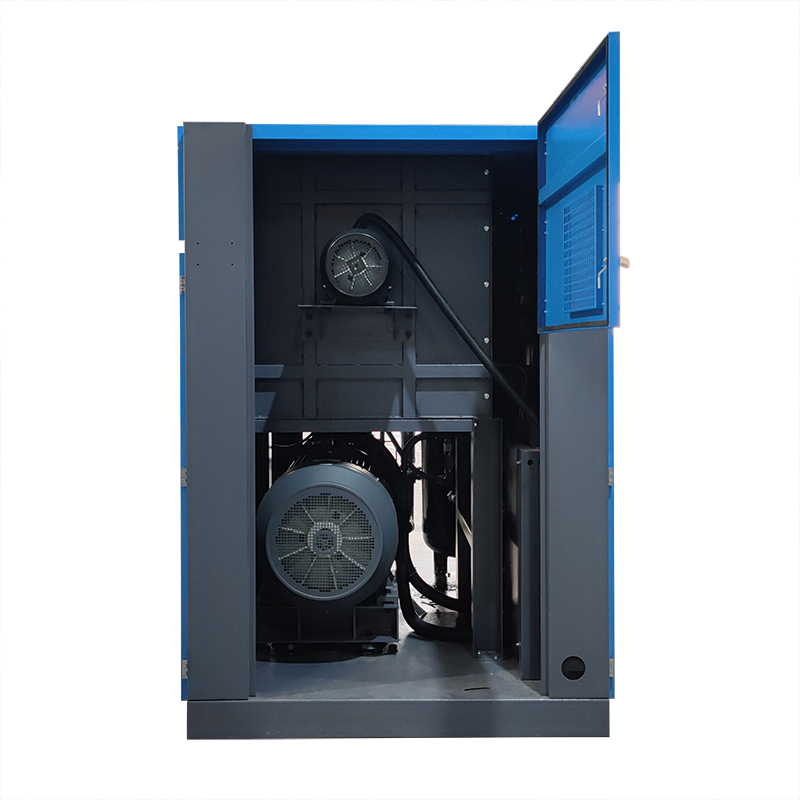
(3) The function of the oil cut-off valve on the oil filling pipe of the machine head is to cut off the oil filling pipe in time when the unit is shut down to prevent a large amount of lubricating oil from being pressed into the machine head due to the residual pressure in the oil and gas barrel, causing excessive lubricating oil in the machine head. many. Therefore, too much lubricating oil in the machine head after shutdown is also one of the reasons for the high starting current of the compressor. The most direct way to solve the problem of excessive lubricating oil in the machine head is to open the end cover of the machine head, release some of the lubricating oil inside the machine head, and repair or replace the oil cut-off valve at the same time.

